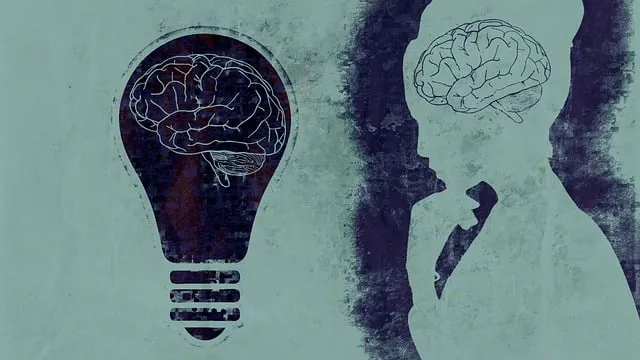Mental health professionals at Kaiser in Boulder face unique challenges, including navigating complex emotional landscapes and high-stakes decision-making. To mitigate these risks, Kaiser employs trauma support, self-care practices, peer supervision, and burnout prevention strategies. Their comprehensive risk assessment framework includes early intervention through regular monitoring, structured processes for burnout prevention, anxiety relief, and public awareness campaigns. Using best practices like tailored risk assessments, open communication, and cultural competency training, Kaiser ensures client safety and holistic care. Through mental wellness journaling, empathy building, and podcast production, professionals enhance their emotional resilience and peer learning. Case studies from Boulder highlight the importance of cultural competency and Mind Over Matter principles for effective patient outcomes.
Mental health professionals (MHPs) face unique risks on a daily basis, making comprehensive risk assessment an indispensable practice. This article explores the critical aspects of managing these risks, drawing insights from Kaiser’s established approach and best practices in clinical settings. We delve into strategies for hazard mitigation and present case studies highlighting real-world lessons. Understanding and mitigating these risks are essential components of any successful mental health service, including those offered by organizations like Kaiser in Boulder.
- Understanding Mental Health Professional Risks
- Kaiser's Approach to Mental Health Risk Assessment
- Evaluating Risks in Clinical Settings: Best Practices
- Strategies for Mitigating Potential Hazards
- Case Studies: Lessons from Real-World Scenarios
Understanding Mental Health Professional Risks

Mental health professionals, like those at Kaiser in Boulder, encounter a unique set of risks that extend beyond the typical workplace challenges. Navigating complex emotional landscapes and high-stakes decision-making processes is inherent to their role. They are often the first line of support for individuals facing severe mental health crises, including those with significant trauma histories. This constant exposure to intense emotions and challenging narratives can take a profound toll on these professionals’ well-being.
Cultural sensitivity in mental healthcare practice plays a crucial role in mitigating these risks. Professionals must be adept at understanding and respecting diverse cultural backgrounds, beliefs, and expressions of distress, which are often shaped by systemic barriers and historical traumas. Additionally, trauma support services within organizations, such as those offered by Kaiser, are vital for helping professionals process their experiences and preventing burnout. By prioritizing self-care practices, access to peer supervision, and implementation of effective burnout prevention strategies, mental health professionals can better serve their clients while safeguarding their own mental health.
Kaiser's Approach to Mental Health Risk Assessment

In the realm of mental health care, Kaiser’s approach to risk assessment is a comprehensive framework designed to ensure patient safety and support for healthcare professionals. This method, developed by experts in the field, takes into account various factors that can impact a mental health practitioner’s well-being and ability to provide quality care. One notable aspect of Kaiser’s strategy is its focus on early intervention, which involves regular monitoring and evaluation to identify potential risks before they escalate.
Boulder residents seeking mental health services can benefit from Kaiser’s structured assessment process. This includes thorough screening for burnout prevention, a critical component given the demanding nature of the profession. By addressing anxiety relief and promoting public awareness campaigns development, Kaiser aims to foster an environment where professionals can thrive while offering exceptional care. Through these initiatives, they ensure that their practitioners remain resilient and equipped to handle the challenges inherent in the mental health field.
Evaluating Risks in Clinical Settings: Best Practices

In clinical settings, evaluating risks is a critical component of effective mental health care. Mental health professionals in Boulder, such as those at Kaiser, must adopt robust best practices to ensure patient safety and mitigate potential hazards. One key practice involves conducting comprehensive risk assessments tailored to each client’s unique needs and presentation. This includes reviewing the individual’s history, current symptoms, and any pertinent risk factors that may impact their well-being during treatment. Regularly updating these assessments is vital as a client’s condition can fluctuate, revealing new risks or diminishing old ones.
Additionally, fostering an environment that encourages open communication and integrating conflict resolution techniques can help identify and address risks proactively. Healthcare provider cultural competency training further enhances this process by promoting understanding and sensitivity to diverse populations’ unique mental health needs and challenges. Boosting the confidence of mental health professionals through relevant training enables them to navigate complex situations more adeptly, thereby enhancing risk management. These practices collectively contribute to creating a safer clinical environment where clients receive holistic care tailored to their specific risks and needs.
Strategies for Mitigating Potential Hazards

In mitigating potential hazards, mental health professionals in Boulder, or any setting, should adopt a multi-faceted approach that combines practical strategies and self-care practices. Firstly, mental wellness journaling exercise guidance can serve as a powerful tool for professionals to process their caseloads, reflect on challenging interactions, and foster personal growth. This practice allows them to vent, gain clarity, and identify patterns in their work, thereby enhancing emotional resilience.
Additionally, empathy building strategies are essential in creating safe spaces for clients. Professionals can enhance their empathy by actively listening, validating clients’ feelings, and incorporating techniques like reflective listening into their sessions. This not only strengthens the therapeutic alliance but also protects professionals from potential emotional exhaustion. Moreover, engaging in a mental wellness podcast series production can provide an outlet for sharing insights, learning from peers, and staying updated on best practices, ultimately contributing to better risk management and professional development.
Case Studies: Lessons from Real-World Scenarios

Case studies offer invaluable insights into real-world scenarios faced by mental health professionals. By examining specific instances, such as a healthcare provider’s encounter with a patient from a diverse cultural background in Boulder, where Kaiser offers mental health services, we can identify potential risks and learn beneficial strategies. For instance, a study might highlight how a provider’s lack of cultural competency training led to miscommunication and a negative outcome for the patient, emphasizing the importance of such training.
These scenarios also showcase resilience-building opportunities. Mind Over Matter principles can be applied when professionals navigate challenging situations, helping them maintain composure and adapt effectively. Real-world case studies provide tangible examples of how mental health providers can enhance their practices, ensuring better patient outcomes and fostering a more inclusive healthcare environment, especially in diverse communities like Boulder.
Mental health professionals, like those offered by Kaiser in Boulder, face unique risks on a daily basis. By implementing comprehensive risk assessment strategies, as outlined in this article, including best practices for clinical settings and hazard mitigation techniques, these professionals can create safer working environments. Learning from real-world case studies serves as a powerful reminder of the importance of proactive risk management. Adopting approaches like Kaiser’s can significantly enhance mental health service delivery, ensuring the well-being of both professionals and clients alike.






